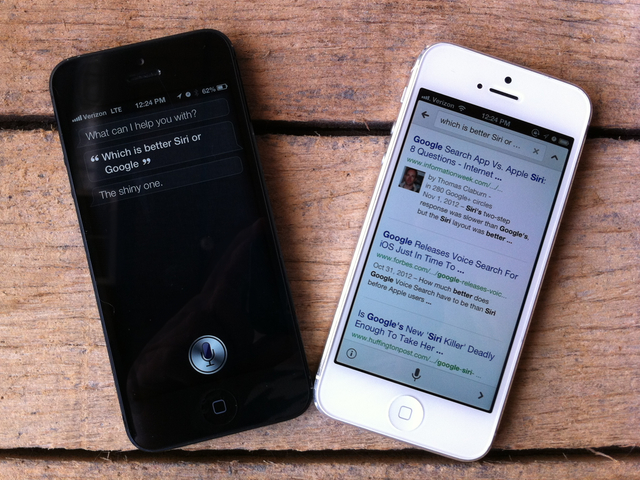
Voice-controlled smartphone searches are slowly becoming all the rage, thanks to tools like Apple's Siri and Google's "enhanced" voice search. While Google's technology has been available to Android users for some time, the company recently updated its native search app for iOS with its latest developments in contextual voice queries. For iOS users, this means there's now actual competition for what you use when you want to make quick lookups without your thumbs. So which one is better: Google or Siri?
We thought we'd ask both "apps" the kind of questions we'd find ourselves debating with friends (which usually results in someone whipping out a smartphone to look up the answer). We took 20 different questions, ranging from practical to less-than-practical, to see which one gave us the most useful answers. The goal was to ask questions in a casual way—after all, both Siri and Google are supposed to be able to read into the context of your question without too many specifics.
Both apps performed reasonably well, but there were many cases in which one gave a better answer than the other. Depending on what kinds of things you might ask Siri or Google, one may be superior. Read on and discover what's best for you (and chuckle at our attempts to get answers out of the two AI bots):
What is 72° Fahrenheit in Celsius?
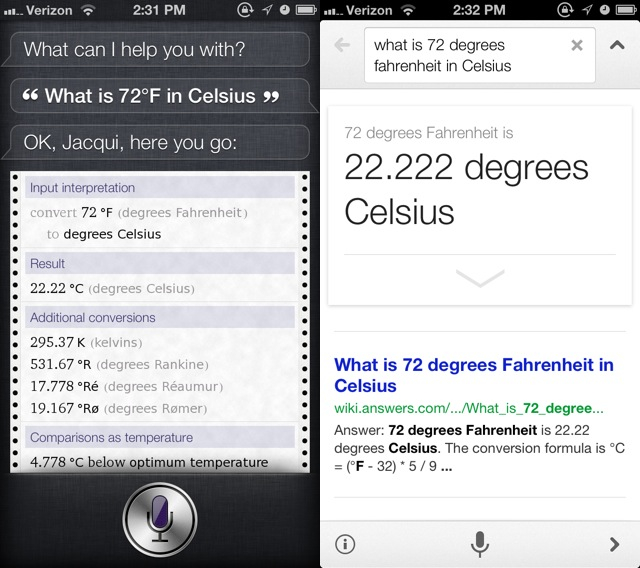
Both apps returned accurate results to this query, and delivered them directly. This is an important point we'll run into later; not all queries were failures, but sometimes we had to go through extra effort to find the answer. For this one, the answer was simple. Both Siri and Google were able to tell us right away.
Winner: Draw
Who founded the Free Software Foundation?
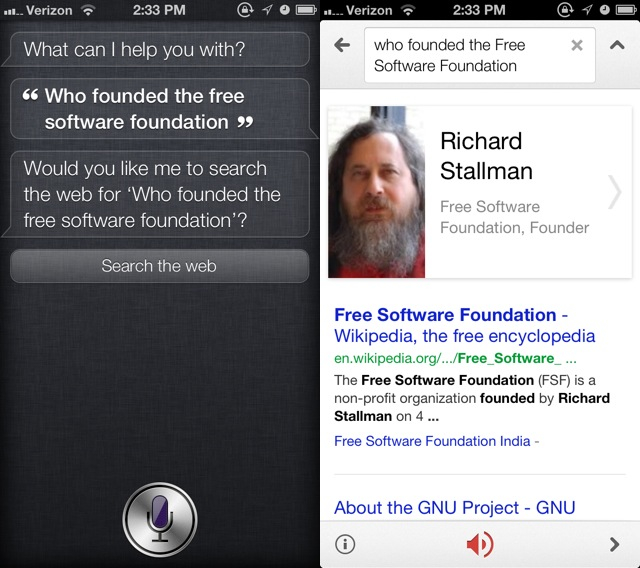
As you can see above, Google won this one by giving us the answer right away. Siri could have directed us to the answer (that's what the "search the Web" option is for when Siri can't find out right away), but it would have required extra taps. We would've ended up at Google anyway.
Winner: Google
When does Les Misérables come out?
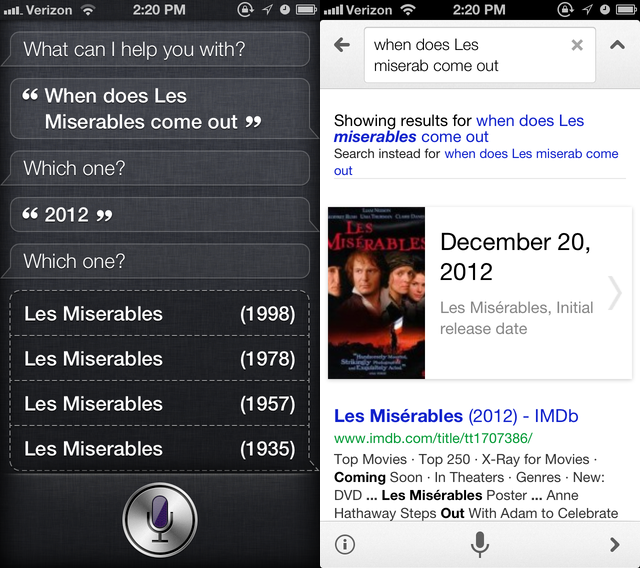
I was intentionally vague when asking this question, because I wanted to see if the apps could identify that I was talking about 1) a movie, and 2) a movie that hasn't yet been released (or at least, the latest version hasn't been released yet).
As you can see from the answers above, Siri clearly did understand that I was talking about a film and not the musical, but Siri didn't seem to know a new version of Les Misérables is coming out this December (even when I specified that I wanted the 2012 version). Google, on the other hand, knew that a version of Les Misérables is coming out this year, and it gave me the date I was looking for.
Winner: Google
When did Tim Cook become CEO of Apple?
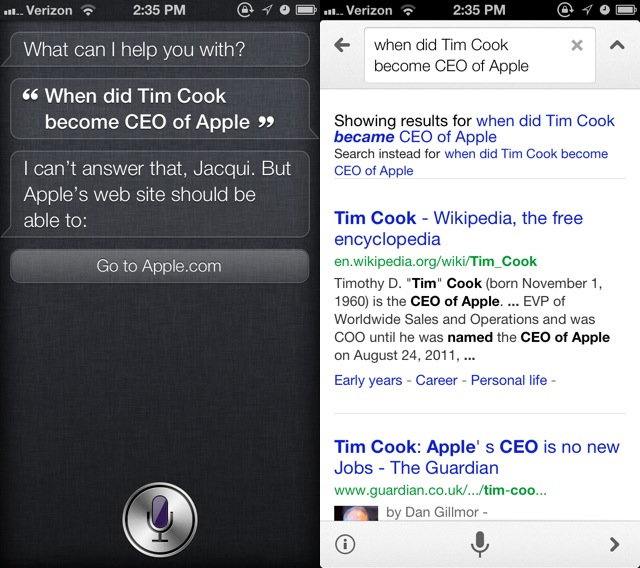
Neither Siri nor Google was able to tell me the exact date when Apple announced Tim Cook as CEO (August 24, 2011). But Google was at least able to point me to the Wikipedia page about Tim Cook, and Siri wanted to point me to Apple's website.
Update: Readers have pointed out that Siri's result only takes you to Apple's home page, which is arguably less useful than a simple Google search. As a result, I'm updating the winner of this one...
Winner: slight lean toward Google, because search results are better than nothing
Who painted the Mona Lisa?
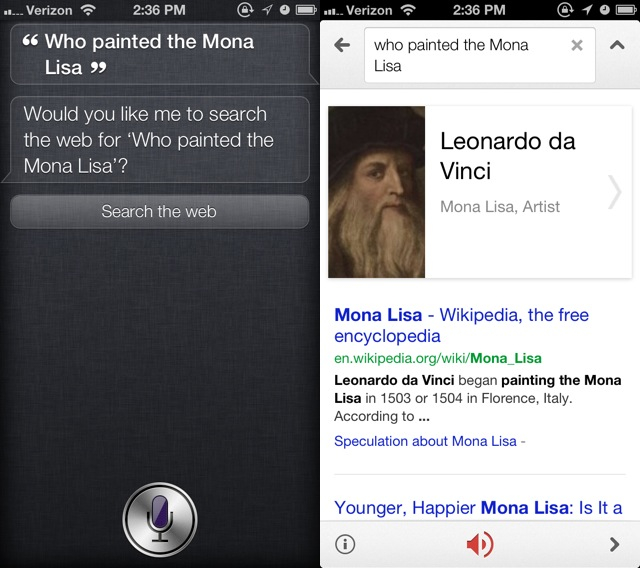
Google was able to give me the answer right away with no extra clicks. Siri, on the other hand, wanted to send me to the Web. I'm surprised the answer to this one wasn't in Wolfram Alpha (which Siri can query), but regardless, Google had the more efficient result.
Winner: Google
What time does Bin Wine Café open?
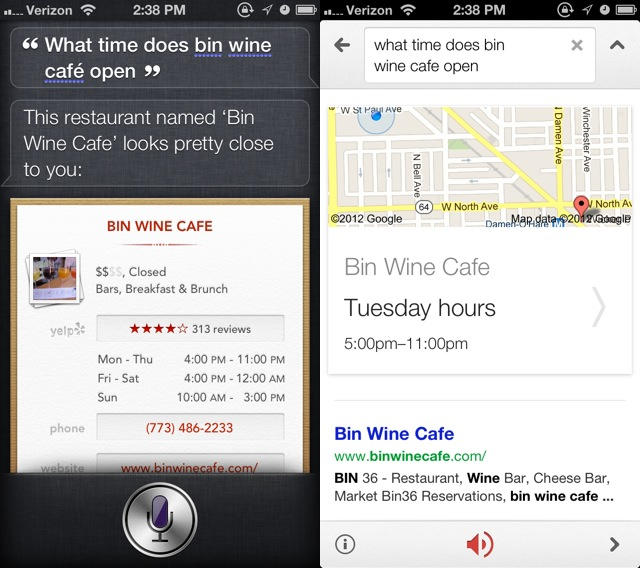
For this query, Siri didn't quite understand what I was asking, but still provided me with the answer I was looking for. Google also provided me the answer I was looking for. Strangely, they report different times for when this restaurant opens. This is undoubtedly due to conflicting information sources; Siri pulls its data from Yelp, but it's unclear where Google pulls its info from (most likely its own restaurant listings). According to the restaurant's own website, it's open for "nosh" at 4pm and open for dinner at 5pm. I guess both answers are technically correct.
Winner: Draw
Where is Google's Chicago office?
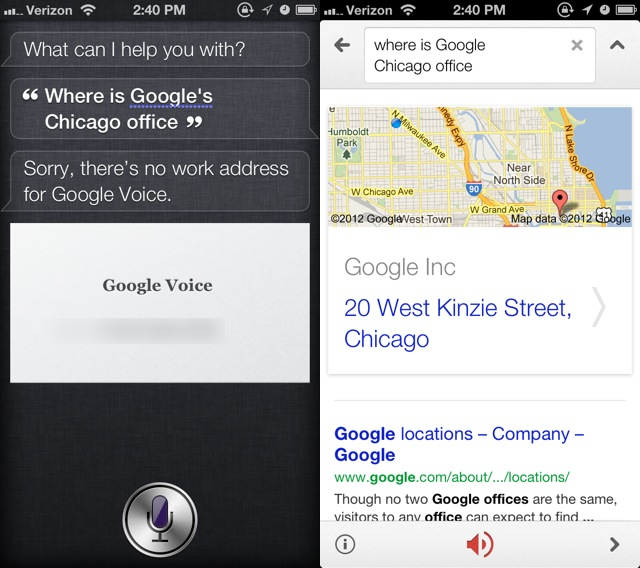
I suspected this might be a difficult one for Siri to pull out, and I was right. Siri thought I was asking a completely different question and tried to give me my own Google Voice number that I have stored in my Contacts. Google, on the other hand, knew what I was asking and was able to provide the location of the company's office in Chicago.
Winner: Google
What goes into cheddar cheese?
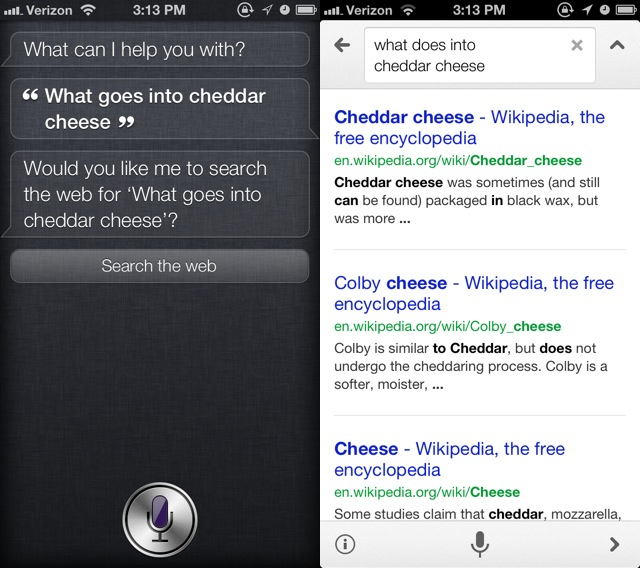
Neither app was able to provide the answer directly to me without extra clicks. Siri would have required at least one extra tap compared to Google.
Winner: Draw
What is 300 pesos in American dollars?
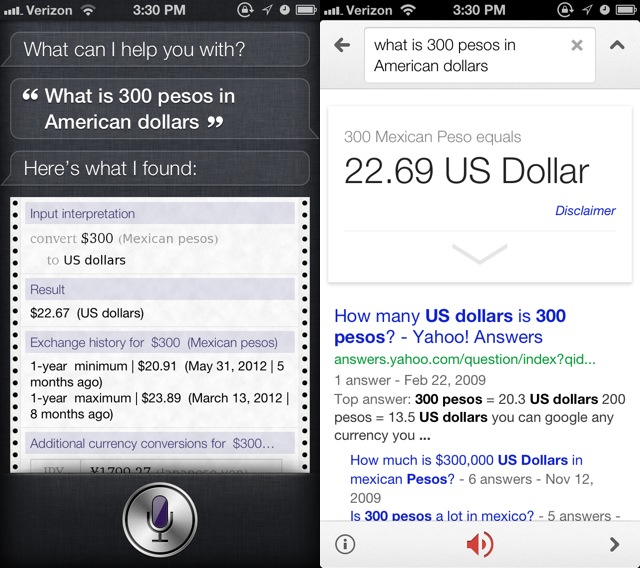
This is a type of query that many of us find ourselves using when traveling. Both Siri and Google provided us the answer directly, but Siri offered extra details that might be useful. For instance, Siri provides the exchange rate history so we could see how things have changed over time.
Winner: Draw on the original question, with a slight lean towards Siri for extra contextual data
How old is Justin Bieber?
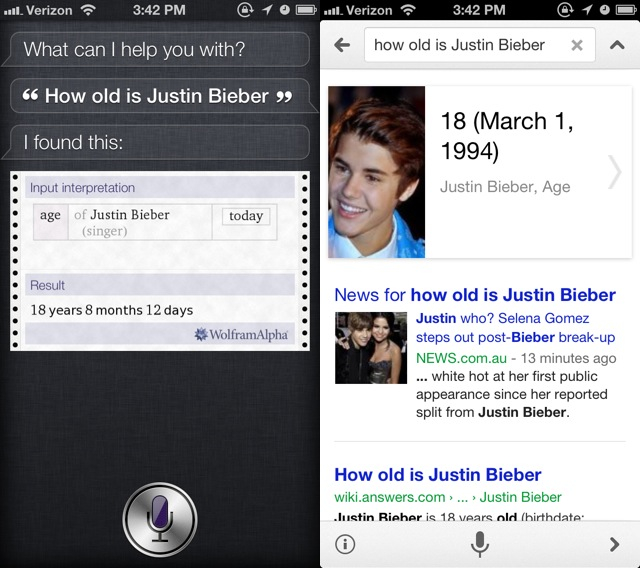
Well, how old is he?!? Both services gave me the correct answer, but Google provided Bieber's actual birth date in addition to his age. Siri, on the other hand, gave me an extremely specific age (18 years, 8 months, 12 days). While that information might be useful to someone, I suspect the birth date might be easier to grok.
Winner: Draw, with a slight lean towards Google for more useful contextual data
reader comments
201